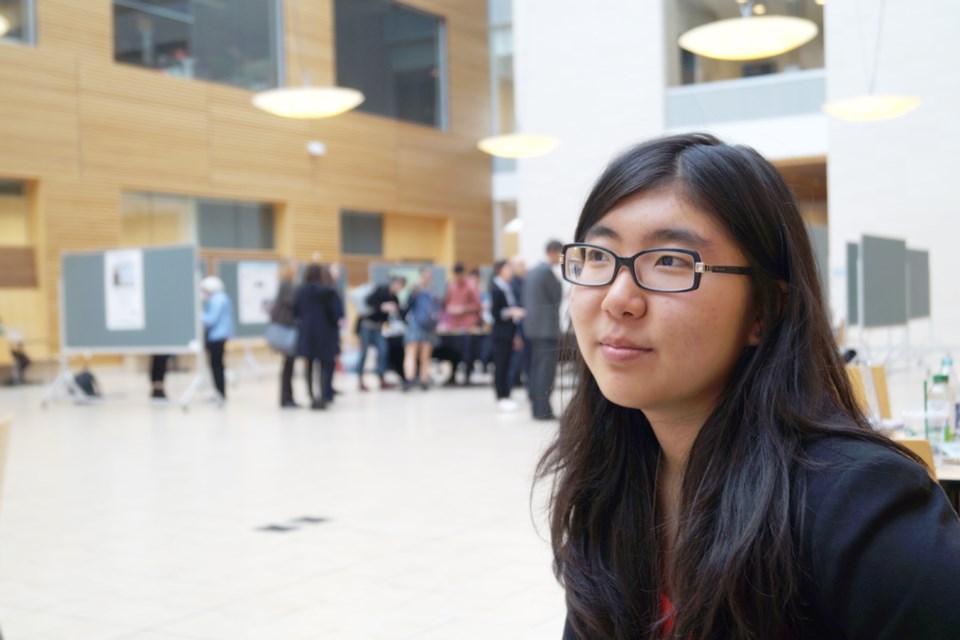Hugh Boyd secondary student Jean Oh insists she is just like many other 16-year-olds who spend their spare time doing things they enjoy.
It’s just that what she likes pursuing away from school and other responsibilities may one day provide a cure for Alzheimer’s disease.
That’s what Oh, who is in Grade 11, is working towards. It was also the subject of a science project she presented at a competition held April 11 at UBC.
Oh has been working on a therapeutic treatment for Alzheimer’s by developing a mutant enzyme that is hoped will prevent the proteins responsible for producing harmful plaques on the brains of Alzheimer’s patients.
“I feel this new approach could have some potential,” she said. “A lot of other people (researchers) are looking at targeting the plaques themselves and creating inhibitors. But by creating a mutant (enzyme), I can bypass a lot of other problems drugs have when dealing with Alzheimer’s.”
While Oh did not take home top place in the BC Regional Competition for Sanofi Biogenius Canada (SBC), she remained optimistic her continued efforts may one day make a difference.
The contest is one of the country’s most prestigious science competitions, which pairs exceptional, young students with academic mentors to pursue real-world research projects.
In Oh’s case, she conducted her research under the mentorship of two UBC professors, Dr. Haakon Nygaard, assistant professor of neurology and Dr. Vikramaditya G. Yadav, assistant professor of chemical and biological engineering.
Oh said she has always gravitated towards sciences.
“My preferred occupation has changed over the years, from being a vet to doing research. But all the time it’s stayed on that science path,” she said. “Now, I want to look into potential cures for diseases.”
While no one in her family has been afflicted with Alzheimer’s, Oh said she was driven to focus on the disease because of its potentially devastating effects.
“It’s an important area to target, because a lot of diseases can affect a certain part of your body, but none of them can say they take away a part of who you are,” she said.
Oh credits her parents for passing on their passion for learning, as the main reason why she is seeking such a lofty academic path.
For now, she will be continuing her research at UBC in hopes she can make a significant breakthrough in the next few years.
And she intends to weigh up where she’d like to study once high school is finished.
Until then, it’s a relatively normal teenage life for her, she said.
“I do a lot of the same things other teenagers like, but a little bit different, I guess,” Oh said. “I play piano and watch movies.
“Some people my age like to spend their free time watching TV or going out with their friends. But this is what I want to pursue in my own free time,” she said, adding what she may come up with as a result of all that hard work could change many lives for the better.
“It’s the potential that science has for changing the world I find exciting. And I’d like to be a part of that and help discover new things,” she said.



